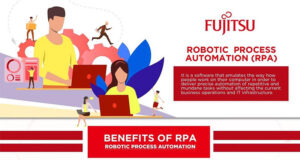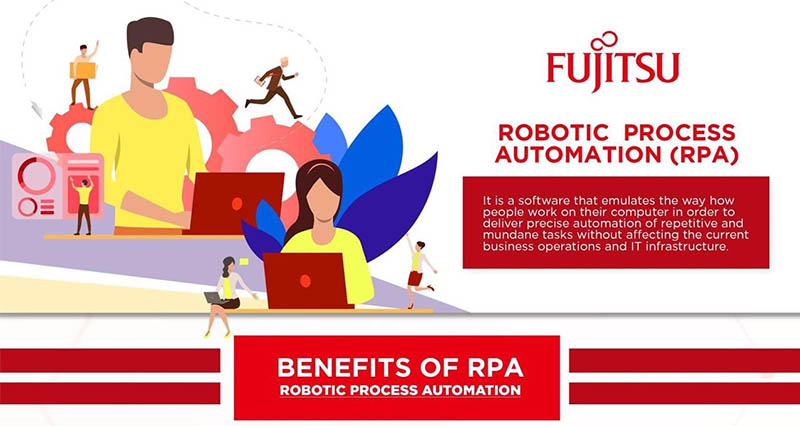Robots have been around for years, working side by side with humans in ways never imagined before. They make lives easier as they serve as tools that complement how people live, work, and play. They also help in performing simple, repetitive tasks faster and more precise, making them the perfect “assistants.”

In modern workplaces, there is the Robotic Process Automation (RPA) technology, a term that is heard more and more. For some IT professionals, RPA does not require further explanation. But others need a bit of help. What is it, really?
RPA works just like “virtual assistant,” aimed at automating business processes. By using this technology, businesses can configure software or “robots” to capture and interpret applications for processing a transaction, manipulating data, triggering responses, and communicating with other digital systems to emulate the way people work, without disrupting the business.
RPA is not yet ‘deep learning’ like Artificial Intelligence (AI), solving global problems with automated algorithms, but if you can teach it, then you can use it to automate processes. It is most helpful in cutting costs, increasing efficiency, accelerating speed-to-market, and achieving compliance.
By automating repetitive, rule-based tasks, businesses can optimize their business operations—for instance, running operational costs, monitoring working queues, updating system records, creating incident logs, and enabling business improvements.
Perhaps, less obvious is RPA’s positive impact on employee satisfaction. Free from the burden of mundane, repetitive processes, employees have more time for interaction, innovation, and delivering better value to the company and customers.
With the onset of RPA, more “virtual assistants” will appear at the office. What do they exactly do? Here are some of RPA’s applications, as listed by Fujitsu Philippines, Inc., one of the country’s leading Information and Communications Technology (ICT) system integrators:
Faster and error-free Order Processing. Manual processing of orders leaves a business open to processing errors, fulfillment delays, and lack of visibility, which drain resources and hinders customer service. It may even hurt your reputation.
With RPA, it can help streamline the process as it automatically checks the price, verifies it against the sales order, and posts them directly on your enterprise resource planning (ERP) platform or any back-office applications.
Stress-free Financial Closing. RPA can also help ease and reduce error risk of the painstaking process of opening hundreds of excel files and manually reconciling data for financial closing.
Remote Workflow Automation. With just an email or thru a portal, you can command Fujitsu’s RPA to execute tasks, anytime and anywhere. RPA reduces the need for a laptop with higher specs and the consumption of electricity and internet data. It also asks for the next steps to proceed.
Fujitsu Philippines has been helping local organizations across various industries in automating their business processes through its RPA solution offerings. With its local knowledge that comes from its nearly five decades of operations in the country, the company has gained rich experience and best practices in executing pilot projects and scaling-up across the enterprise.
Aside from the benefits that organizations can get from RPA, Fujitsu also ensures that the integration of solutions is unobtrusive with legacy systems, as well as accurate and consistent 24X7. They also work with their clients on upskilling employees with automation or partner with them to co-create their automation journey. Fujitsu also provides strong support through their local and regional teams.
To know more about Fujitsu Philippines Inc., visit the website at http://www.fujitsu.com/ph.




